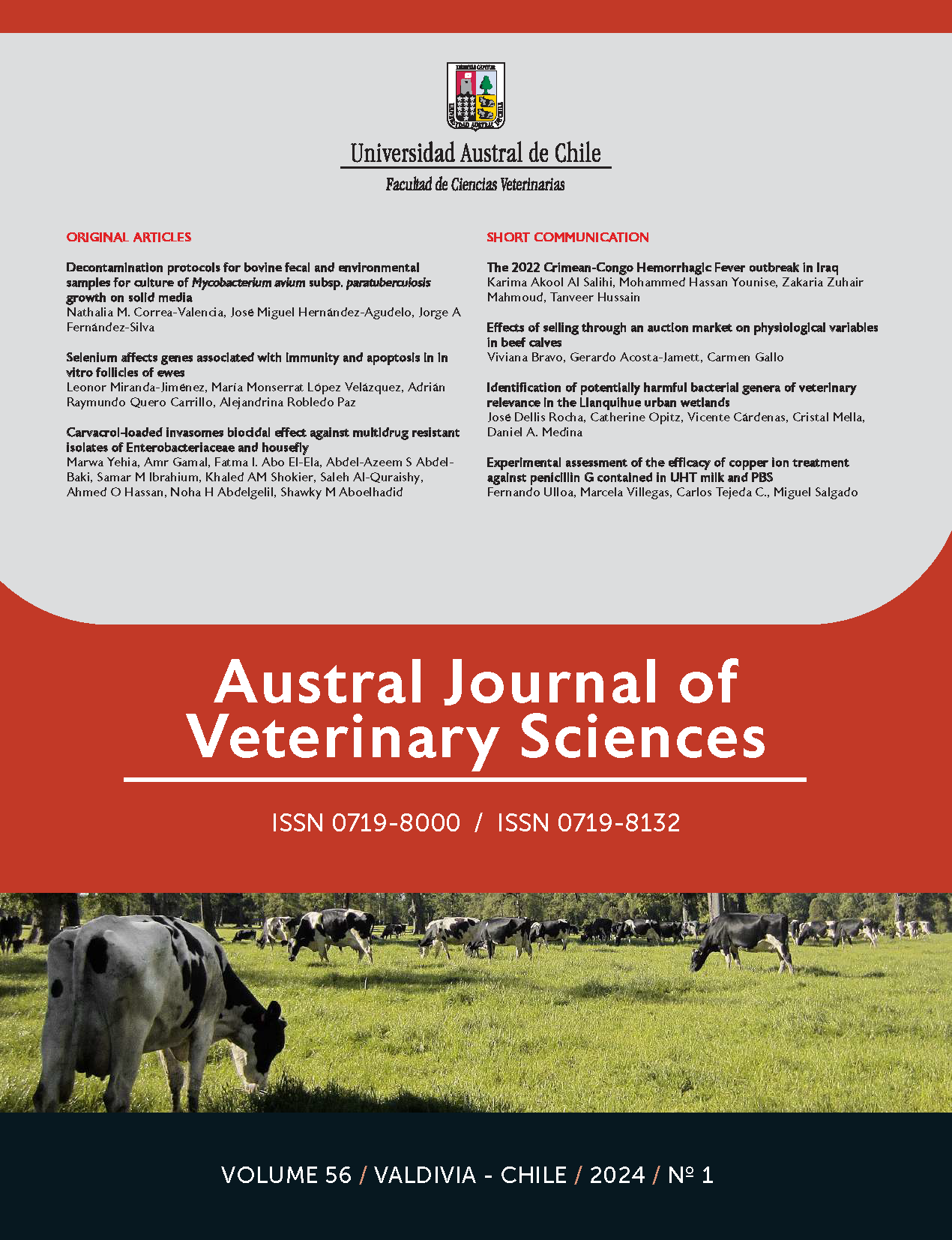Effects of selling through an auction market on physiological variables in beef calves
Conteúdo do artigo principal
Resumo
In Chile, selling cattle through auction markets is common, and involves various stressful events. The objective of this study was to determine the effects of selling weaned beef calves through an auction market on indi- cators of physiological stress. Considering that transportation is invariably linked to any commercialization procedure, we compared the effects of exposing calves to transport and sale through an auction market versus transporting them directly between farms. Twenty calves of 175 (+/-37.5) kg live weight were transported from their origin farm to an auction market (2.5 h journey), where 10 calves were unloaded and exposed to regular handling within the market (unloading, sorting, regrouping, penning, sale yard showing) and thereafter loaded and transported back to the farm (TM). The remaining 10 calves were not unloaded at the market and were immediately transported back to the farm, simulating a direct sale (TD). Data collection (blood samples, body temperature, and live weight) was performed at the farm in both groups before loading (initial, 0 h), at the end of the process, after unloading TM calves back on the farm (after unloading, 12 h), and during recovery at 24, 48, and 72 h after the initial sampling. We used mixed-effects models to compare treatments and samplings. No differences were found between treatments in terms of live weight loss, maximum eye temperature, plasma β-hydroxybutyrate, and serum cortisol concentrations. The rectal temperature was higher (p < 0.05) in TM after treatment and remained higher (p > 0.05) in the samples than in TD. Calves that passed through the market showed higher (p < 0.05) plasma CK activity after unloading (12 h) than did those that did not. The mean glucose concentration increased (p < 0.05) at 12h and remained higher than the initial value (0 h) in both the calf groups. This was a preliminary study, and according to the results, experiments should be repeated to test more animals under different situations and premises.


 https://orcid.org/0000-0002-9645-3551
https://orcid.org/0000-0002-9645-3551